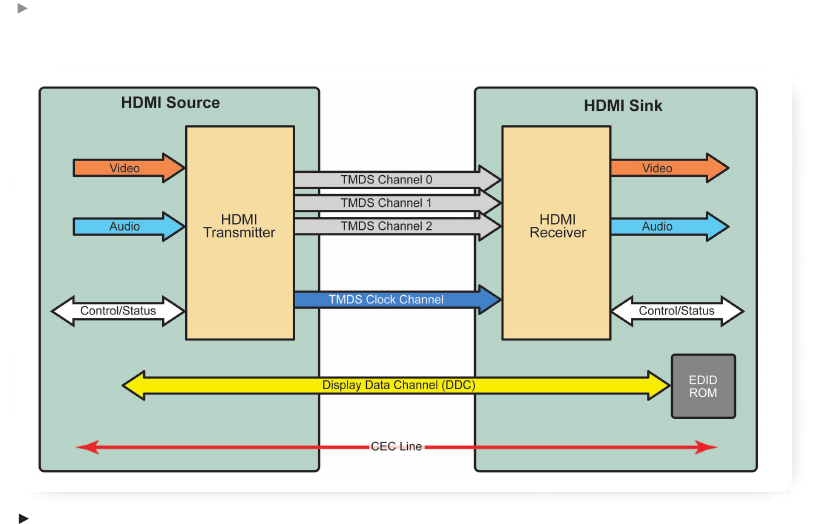
H
DMI Compliance & Sink Characterization Using DTG5000 Series Data Timing Generator
Application Note
2
www.tektronix.com/signal_sources
2
HDMI supports standard, enhanced, or HD video as
well as standard or multi-channel surround audio. The
interface offers uncompressed digital video and a
bandwidth of up to 5 gigabytes per second through
one small connector instead of several cables and
connectors as in the past. In addition, HDMI enables
communication between the video source and the
digital television (DTV). HDMI development is over-
seen by HDMI Founders including Sony, Hitachi,
Panasonic (Matsushita Electric Industrial), Silicon
Image, Philips, Thomson (RCA) and T
oshiba.
The HDMI Founders have stipulated that all HDMI
products must pass a battery of required compliance
tests to qualify to use the HDMI logo. This compliance
testing will ensure true interoperability and accordingly,
customer satisfaction. Today, these tests can only be
performed at an HDMI Authorized Testing Centers
(A
TC). Pr
e-compliance testing during the design and
manufacturing stages greatly increases the likelihood
of successfully passing the final compliance tests at
the ATC. Pre-compliance testing can save valuable
time and resources.
This technical brief discusses the equipment required
for pre-compliance and compliance testing to the HDMI
physical layer Compliance Test Specifications (CTS).
HDMI Technical Characteristics
HDMI uses a high-speed serial interface that is based
on transition-minimized differential signaling (TMDS)
to send data to the r
eceiver
. TMDS signals transition
between “on” and “off” states using an algorithm that
minimizes the number of transitions to avoid excessive
levels of electr
omagnetic inter
ference (EMI) on the
cable. The differential signal amplitude is +3.3 volts,
terminated in 50 Ω with 500 mV nominal amplitude
transitions (from +2.8 V to +3.3 V).
2
Figure 1.
HDMI pixel data flow and organization from Source to Sink.














